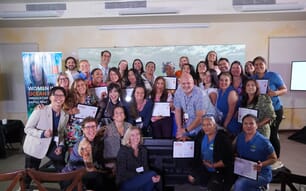If consumed, PSP toxins can cause a variety of symptoms including tingling and numbness of the lips, tongue, hands and feet, and difficulty swallowing. In severe situations, this can proceed to difficulty walking, muscle paralysis, respiratory paralysis and possibly death.
Agriculture Minister, Gerry Ritz, said, "This is another example of the excellent work being carried out by the Government of Canada to improve food safety through sound science. By implementing this new internationally recognised testing method, Canada continues to be a world leader in marine toxin monitoring."
The new test uses a method called liquid chromatographic post-column oxidation (LC PCOX) to separate fluid samples at the molecular level. This allows individual toxic compounds to be identified and measured. This test replaces the traditional mouse bioassay (MBA) method used since the 1950s. That test estimated the toxin levels by studying its effects on mice.
"The previous method was able to help determine if shellfish were unsafe to eat," explains Jeff van de Riet, Senior Research Coordinator with the CFIA's Dartmouth Laboratory. "This new method allows us to analyse PSP toxin levels more precisely so we can detect low levels of toxins before they become dangerous. It also reduces testing costs by more than 50 per cent."
The new method was put in place at various laboratories in April 2011. These laboratories process in excess of 10,000 samples every year to verify that the shellfish harvested in Canada are safe to eat.
The test was developed and validated by the CFIA's Dartmouth Laboratory, in partnership with the National Research Council Canada's Institute of Marine Bioscience. As of March 2011, it received approval from the Association of Official Analytical Communities (AOAC) International, the globally recognised body for standardisation of analytical methods and laboratory activities.
The CFIA is the largest science-based regulatory agency in Canada and relies on sound science to monitor food safety. CFIA scientists conduct specialised laboratory testing, research, surveillance, risk assessment and product evaluation to protect Canada's food supply, and plant and animal resources.
New Testing Method For Shellfish Toxins
CANADA - The Canadian Food Inspection Agency (CFIA) has developed a new faster paralytic shellfish poisoning (PSP) testing method, which can detect which toxins are present in mussels, clams, oysters and scallops, and at what concentration. This will provide an important early warning for potential toxic outbreaks.




